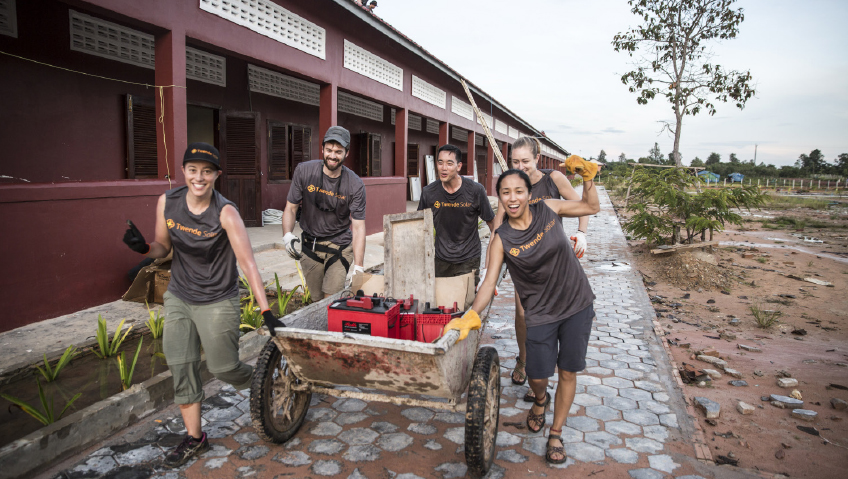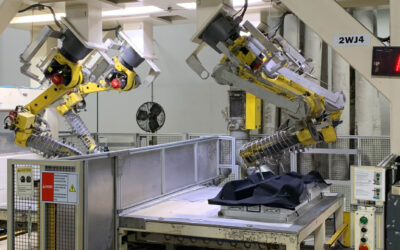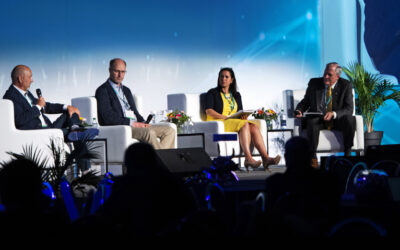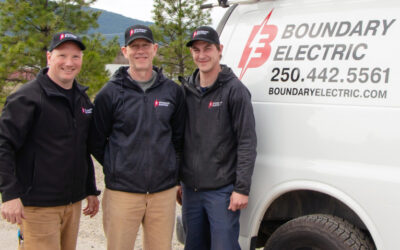Canadian battery producer Surrette Battery Company Ltd. is a deep cycle battery producer based in the eastern province of Nova Scotia. It was originally located in Salem, Massachusetts but relocated to Springhill, NS in 1959 and has been in operation since then as a third-generation family run business.
Over 70 years later, the company has maintained an identity as Canada’s only independent battery manufacturer and a leader in lead-acid battery manufacturing. The company produces and exports flooded lead-acid and sealed VRLA (valve-regulated lead acid), AGM (absorbed glass mat) & GEL (gas cel) deep cycle batteries as well as LiFePO4 lithium batteries under the “Rolls” brand for the marine, motive power and renewable energy sectors as well as rail, with notable customers including General Motors, Canadian National Railway, General Electric, and more.
Marketing Manager Jeff Myles describes the use of the lead-acid battery, specifically the deep-cycle model which Rolls is known for, as being primarily for cycling and drawing energy over a longer period such as powering industrial equipment or in an off-grid home where the batteries are charged during the day with solar and then energy is drawn over an extended period until charging again the next day.
A flooded lead-acid or ‘wet’ battery gets its name from the fact that its cells are submerged in an electrolyte mix of sulphuric acid and water. Over time, as the battery is repeatedly charged, evaporation occurs, and each cell must be periodically topped up with distilled water to maintain the battery’s capacity and lifespan. Sealed versions, commonly known as AGM or GEL batteries, offer a low-maintenance alternative at a slightly higher manufacturing and consumer cost.
As a well-recognized premium brand, Rolls also touts an aggressive warranty program that rivals most others in its field, as well as offering a unique dual-container design on its premium line of flooded models which provides added safety against spills and uses a modular bolt-on cell construction, allowing easier replacement and transport when necessary.
To further the performance of its products, in recent years, the company has also added a proprietary blend of nanocarbon to all its flooded batteries which allows the battery to charge more efficiently and at lower temperatures, offering better performance and extending cycle life.
Myles explains that lead-acid technology has been around since the late-1800s, and traditional deep cycle batteries have been used in a wide range of applications and industries.
In North America, 99.3 percent of lead-acid batteries are recycled and they are the most recycled consumer product in the world. In Canada, lead-acid batteries are recycled at end of life in a closed-loop recycling program where spent batteries are processed and most recycled lead is then sold back to lead battery manufacturers. Lead from a lead-acid battery can be recycled infinitely; in fact, over 90 percent of the lead used in their manufacturing process comes from recycled lead-acid batteries.
In addition to making use of recycling as a renewable source of lead, Myles notes that the Springhill plant is registered with the International Organization for Standardization (ISO), meaning that it is routinely audited and operating at peak efficiency regarding safety.
“We’ve set guidelines and protocols for safety in the workplace which far exceed what is necessary,” says Myles, and employee health is of top priority.
The battery market has seen a boom within the last decade in conjunction with the boom in renewable energy production. Initially, batteries like those produced by Rolls were manufactured for locomotives, marine applications, and industrial equipment. The energy industry eventually adopted deep-cycle batteries and used them further for residential and off-grid purposes.
As renewable energy applications grow, so too does the demand for storage, and so the products in the Rolls inventory have expanded to offer larger battery cells. Myles notes that the company has been selling its traditional flooded lead-acid batteries for use in renewable energy applications just as much as it did ten years ago, if not more so, thanks to the continued popularity of renewable energy solutions.
Myles has observed a large uptick in the use of lithium batteries in myriad large-scale storage applications, a solution that is very enticing due to their maintenance-free operation and lower weight, especially compared to lead-acid batteries.
With distributors and dealers looking to expand product offerings in the wake of this, the company hired an LFP (lithium iron phosphate) specialist to help with research and development of its own lithium battery offering.
Developing a line of drop-in replacement models with LFP cells, known to be the most stable, the company now offers a lighter-weight maintenance-free alternative to sealed lead-acid models. These batteries incorporate a built-in battery management system (BMS) – essentially, a computer that manages charging of individual cells and limits operation in conditions outside its safe operating range.
Lithium is not the magic solution for all that some may assume, Myles stresses, and its current rise is not at the expense of the reliable, traditional lead-acid battery. Lithium does hold the advantage over traditional lead-acid batteries with respect to comparable size and weight for equivalent storage capacity. However, lithium batteries do pose a potentially higher risk of failure due to the sheer number of components, leading to more frequent and costly whole battery replacements.
There is a perception in the industry that, because of the availability of the more modernized lithium options, lead-acid batteries will not be viable because of the weight. However, this comes at a premium price to the consumer and Myles stands firm that, although lithium is better suited in some applications where frequent and fast charging and discharging is required, lead-acid batteries will continue to offer a more affordable energy storage solution, especially for residential off-grid customers, and last as long, if not longer, than its lithium equivalent when properly sized and maintained.
Customers in developing countries are often deterred by lithium offerings both because of price and because they lack any incentives such as core credits offered when recycled which offset the cost of replacement at end of life. Many countries in Africa and Central America prefer to work with more familiar flooded and sealed lead-acid batteries as they offer a lower upfront cost, simplicity of use, and availability.
After the advent of COVID-19 in 2020, many deep cycle battery manufacturers were hit hard as the demand for traditional batteries for use in industrial equipment such as floor scrubbers, as well as residential energy storage, grew considerably. This is a positive step for companies like Surrette, but also comes with its own obstacles in that the logistics in obtaining supplies to build batteries are currently strained due to global supply chain challenges. The past few years have not been easy for the company between this market strain, employee shortages, and the rising cost of freight, but it has found its distributor and dealer networks to be very understanding and supportive as the industry continues to move forward.
Continuing to adapt to the demands of the energy storage market, the company is also developing a new enhanced lithium product line with improved connectivity and added features including self-heating, allowing the battery to operate seamlessly in colder climates, which should prove very popular for use in seasonal, off-grid residential applications across Canada. The company’s product offering is tried-and-true, and the Rolls brand has ably stayed on top of the battery game.
Between these innovations, its attention to market trends, and the savvy of its crew, the company aims to keep lead-acid batteries as relevant as they have always been while adapting to the ups and downs of the market with the intelligence and aplomb of their three generations and decades worth of experience.













